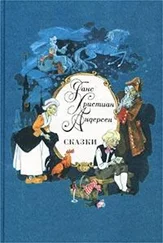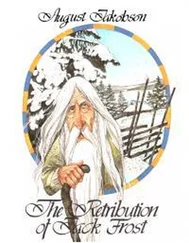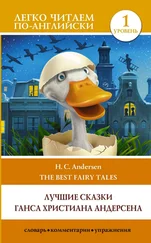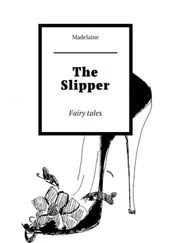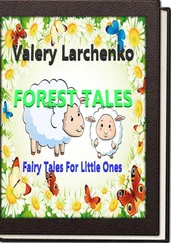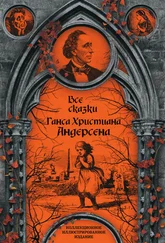Ганс Андерсен - Fairy Tales
Здесь есть возможность читать онлайн «Ганс Андерсен - Fairy Tales» весь текст электронной книги совершенно бесплатно (целиком полную версию без сокращений). В некоторых случаях можно слушать аудио, скачать через торрент в формате fb2 и присутствует краткое содержание. Жанр: Старинная литература, на английском языке. Описание произведения, (предисловие) а так же отзывы посетителей доступны на портале библиотеки ЛибКат.
- Название:Fairy Tales
- Автор:
- Жанр:
- Год:неизвестен
- ISBN:нет данных
- Рейтинг книги:4 / 5. Голосов: 1
-
Избранное:Добавить в избранное
- Отзывы:
-
Ваша оценка:
- 80
- 1
- 2
- 3
- 4
- 5
Fairy Tales: краткое содержание, описание и аннотация
Предлагаем к чтению аннотацию, описание, краткое содержание или предисловие (зависит от того, что написал сам автор книги «Fairy Tales»). Если вы не нашли необходимую информацию о книге — напишите в комментариях, мы постараемся отыскать её.
Fairy Tales — читать онлайн бесплатно полную книгу (весь текст) целиком
Ниже представлен текст книги, разбитый по страницам. Система сохранения места последней прочитанной страницы, позволяет с удобством читать онлайн бесплатно книгу «Fairy Tales», без необходимости каждый раз заново искать на чём Вы остановились. Поставьте закладку, и сможете в любой момент перейти на страницу, на которой закончили чтение.
Интервал:
Закладка:
Little Marie came into the garden with Søren one day. We know he could climb, and he collected both eggs and downy baby birds. The birds flew in fear and terror, small and big alike! The plovers in the meadow, and rooks, crows, and jackdaws from the treetops shrieked and shrieked. It’s a cry that they have to this day.
“What are you children doing?!” shouted the gentle mistress. “These are ungodly acts!”
Søren was down-hearted, and the little noble maiden also looked away a little, but then said shortly and sullenly, “I have permission from father.”
“Away! Away!” cried the big black birds and flew, but they came back the next day for that was their home.
But the quiet, gentle mistress wasn’t at home there for long. Our Lord called her to him, and there she was also more at home than at the manor. Stately church bells rang out as her body was driven to the church. Many poor men’s eyes were misty because she had been good to them.
When she was gone, no one took care of her plants, and the garden fell into decay.
It was said that Master Grubbe was a hard man, but his daughter, young as she was, could cope with him. He had to laugh, and she got her way. She was twelve years old now, big and strong, and her black eyes pierced right through people. She rode her horse like a man, and shot her gun like an experienced hunter.
One day a great and most distinguished company came to that part of the country. It was the young king and his friend and half-brother, Ulrik Frederik Gyldenløve. They were hunting wild boar and would stay at Sir Grubbe’s castle for the day and night.
Gyldenløve sat beside Marie Grubbe at the table. He turned her head and gave her a kiss, as if they were relatives, but she slapped him and said that she couldn’t stand him. Everyone laughed a lot at that, as if it were very entertaining.
And perhaps it was at that because five years later, when Marie had turned seventeen, a messenger brought a letter. Mr. Gyldenløve asked for the noble maiden’s hand. That was something!
“He is the most distinguished and courteous man in the kingdom,” said the squire. “This can’t be rejected.”
“I don’t care much for him,” said Marie Grubbe, but she didn’t reject the country’s most distinguished man, who sat by the side of the king.
Silver, woolens, and linens were sent by ship to Copenhagen. She made the journey by land in ten days. The trousseau met head winds or no wind, and four months passed before it arrived. When it did, Mrs. Glydenløve was gone.
“I’d rather lie on coarse canvas than in his silk bed!” she said. “I’d rather walk barefoot than drive with him in the coach!”
Late one evening in November two women came riding into Aarhus. It was Glydenløve’s wife, Marie Grubbe, and her maid. They had come from Veile, where they had arrived by ship from Copenhagen. They rode up to Sir Grubbe’s brick walled villa. He was not happy about this visit and had angry words for her, but he gave her a chamber in which to sleep. In the morning she got sweet porridge but not sweet words. She was not used to having her father’s evil temper turned towards her, but since she didn’t have a mild temperament, she gave as good as she got. She talked back to him and spoke with bitterness and hatred about her husband. She didn’t want to live with him—She was too decent and respectable for that.
A year passed, and it did not pass pleasantly. Harsh words were exchanged between father and daughter, and that should never happen. Harsh words bear harsh fruit. How would this end?
“We two can’t remain under one roof,” her father said one day. “Move out to our old castle, but bite your tongue off before you start spreading lies!”
So the two parted. She moved with her maid out to the old castle where she had been born and grown up, and where her quiet pious mother lay in the burial chamber of the church. An old cattle herder lived on the property, but he was the only servant. There were cobwebs hanging in the rooms, black and heavy with dust. The garden was growing wild. Hops vines and bindweed twisted nets between trees and bushes, and hemlock and nettles grew bigger and spread. The copper beech was overgrown and standing in shade. Its leaves were now as green as the other ordinary trees, and its days of splendor were past. Teeming flocks of rooks, crows, and jackdaws flew over the tall chestnut trees. There was screaming and shrieking as if they really had news to tell each other. Now she was back, the little one who, with her friend, had stolen their eggs and young ones. The thief himself, who had done the stealing, had become a sailor. He sat on the high mast and received a flogging when he didn’t behave himself.
All of this was told by the schoolmaster in our own time. He had collected and gathered it together from books and notes. It all lay hidden away in the drawer with many other writings.
“Rise and fall is the way of the world,” he said. “It’s a strange story.” And we do want to hear what happened to Marie Grubbe, but we mustn’t forget Hen-Grethe. She’s sitting in her fine henhouse in our own time. Marie Grubbe sat here in her time, but with a different disposition than old Hen-Grethe’s.
The winter passed, spring and summer too, and then the blustery autumn came again with clammy, cold fogs from the sea. It was a lonely life, a boring life there in the castle.
Marie Grubbe took her gun and went out on the heath. She shot hares and foxes and whatever birds she could hit. More than once she met the nobleman Palle Dyre from Nørrebœk, who was also out with his gun and dogs. He was big and strong, and he boasted about that when they spoke together. He could have measured up to the deceased Mr. Brockenhuus from Egeskov in Fyn, whose strength was legendary. Palle Dyre had followed his example and had had an iron chain fastened to the top of his entrance portal. It had a hunting horn attached to it, and when he rode home through the gate, he grabbed the chain and lifted himself and his horse off the ground and blew the horn.
“Come see for yourself, Mrs. Marie,” he said. “There’s fresh air at Nørrebæk!”
It’s not recorded when she moved to his manor, but engravings on the candlesticks in Nørrebœk church say they were gifts of Palle Dyre and Marie Grubbe of Nørrebœk.
Palle Dyre had a big body and brute strength. He drank like a sponge and was like a barrel that could never be filled. He snored like a whole pen full of pigs and was red and puffy looking.
“He’s cunning and mischievous!” said Mrs. Palle Dyre, Grubbe’s daughter. She was soon bored with that life, but that didn’t help.
One day the table was set, and the food was getting cold. Palle Dyre was out hunting fox, and his wife was nowhere to be found. Palle Dyre came home about midnight, but Mrs. Dyre came neither at midnight nor in the morning. She had turned her back on Nørrebæk and had ridden away without so much as a word.
The weather was grey and wet. A cold wind was blowing, and a flock of black screaming birds flew over her, but they were not as homeless as she was. First she rode south, to the German border. She sold a pair of gold rings with precious stones and then headed towards the east. Then she turned and went west again. She had no goal, and was angry with everyone, even gracious God, so miserable was her spirit. Soon her body became so as well, and she could hardly lift her foot. The plover flew up from its tuft when she stumbled over it, and cried as it always cries: “Raah-ber raah-ber.” She had never stolen anything, but she had had eggs and young birds brought to her from tuft and tree when she was a little girl. She thought about that now.
From where she lay she could see the sand dunes. Fishermen lived over there on the shore, but she was too sick to reach them. The big white seagulls came flying over her and cried like the rooks, crows, and jackdaws cried over the garden at home. The birds flew quite close to her, and at last it seemed to her that they appeared coal black, but then everything went black for her.
Читать дальшеИнтервал:
Закладка:
Похожие книги на «Fairy Tales»
Представляем Вашему вниманию похожие книги на «Fairy Tales» списком для выбора. Мы отобрали схожую по названию и смыслу литературу в надежде предоставить читателям больше вариантов отыскать новые, интересные, ещё непрочитанные произведения.
Обсуждение, отзывы о книге «Fairy Tales» и просто собственные мнения читателей. Оставьте ваши комментарии, напишите, что Вы думаете о произведении, его смысле или главных героях. Укажите что конкретно понравилось, а что нет, и почему Вы так считаете.

![Ганс Андерсен - Ганс Чурбан[другой перевод]](/books/95480/gans-andersen-gans-churban-drugoj-perevod-thumb.webp)
